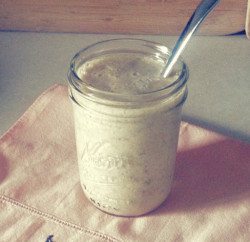It’s easy to think of physical, emotional, and spiritual health as separate aspects of your being, but in truth they are deeply connected to one another. We know that emotional trauma can bring on physical illness; or conversely, depression or changes in mood can have biological causes. But how does spiritual health relate to your physical body?
Physical illness can be a burden on your spiritual practice, and healthy body will allow you to focus on your inner development. We’ve all heard that you can achieve physical health through diet and exercise. But we rarely talk about the most important thing for a healthy body, which is to live in harmony with the rhythms of nature: early to rise, early to bed. These rhythms are created by the sun and the moon, and our energy changes every six hours with sunrise, noon, sunset, and midnight. So the first significant step in creating a healthy lifestyle is being in touch with the solar and lunar rhythms.
1. According to Ayurveda, it is crucial to wake up at least an hour before the sun rises. When the sun starts to rise, the energy of the sun awakens life and stimulates activities. If we don’t get up at this time, dosha pitta (fire) begins to accumulate in the body, stimulating lust, anger, and grumpiness. Sleeping after 6 a.m. is not only causes restlessness, but makes it more difficult to wake up at a later time when the sun is already active. It’s recommended that vata (wind) people should get up at 6 a.m., pitta (fire) people get up by 5:30 a.m., and kapha (earth) people at 4:30 a.m. The morning hours are the happiest time of the day when the mind is at peace and senses are fresh. That’s why morning is the best time for meditation and prayers. Benjamin Franklin, whose day started at 5 a.m., had a daily routine he called Scheme: “Rise, wash and address Powerful Goodness!”
2. Start your day by drinking room temperature water, scraping the tongue for stimulating the internal organs, taking a cool/warm shower to cleanse your aura, and putting on clean clothes. It is believed that meditation and praying after showering and putting on clean clothes have more energy of purity and virtue. The best time for meditation/praying is actually between 5 and 6 a.m. when there is a balance between the solar and lunar energies with a little more of the moon light, and when the mind is free from thoughts and concerns of the day. Sitting straight (not lying) during meditation and praying gives a power to the words that promise to live the day in honesty, forgiveness, and compassion. Morning meditation/praying often bring us understanding and finding solutions to your current problems.
 3. Eat breakfast between 6 a.m. and 8 a.m., when the energy of the moon is still present, which gives better taste and eases digestion. Breakfast should be light so it doesn’t require much energy from the body. In winter, breakfast can be dried fruits (prunes, dates, and raisins) sprinkled with cinnamon and nuts (almonds and walnuts), and hot herbal tea. In summer, try fresh fruits (apple, banana) and nut butter, and fresh fruit juice or smoothie. Hot cereals are a heavy food for breakfast and are not recommended in Ayurveda. Sweet taste is the taste of love and happiness so eating healthy sweets contributes to the morning feeling of happiness and anticipation of a happy day. No other taste is recommended in the morning, especially in order to balance women’s hormones.
3. Eat breakfast between 6 a.m. and 8 a.m., when the energy of the moon is still present, which gives better taste and eases digestion. Breakfast should be light so it doesn’t require much energy from the body. In winter, breakfast can be dried fruits (prunes, dates, and raisins) sprinkled with cinnamon and nuts (almonds and walnuts), and hot herbal tea. In summer, try fresh fruits (apple, banana) and nut butter, and fresh fruit juice or smoothie. Hot cereals are a heavy food for breakfast and are not recommended in Ayurveda. Sweet taste is the taste of love and happiness so eating healthy sweets contributes to the morning feeling of happiness and anticipation of a happy day. No other taste is recommended in the morning, especially in order to balance women’s hormones.
4. Between 7 and 10 a.m. is better for moderate exercises and yoga while 10 a.m. to 12 p.m. allows for more vigorous workouts. From 8 a.m. to noon, i.e. during the rising of the sun, is best for studies, memorizing, creative, productive and intellectual activities.
5. When the sun reaches its peak at noon, it is the time for lunch. The fire energy of the sun easily digests all kinds of food, and no energy is taken from the reserves of the body to process a meal. Ayurveda recommends that most of daily food intake should be at lunch, and all six tastes should be present (sweet, sour, salty, bitter, pungent, astringent). If someone likes spicy food, it should be eaten at lunch; grains, potato and other root vegetables belong to lunch. Salad, soup, main course and a little dessert are all permitted at lunch. We eat for the mind and emotions, so it’s essential for intellectual and emotional satisfaction that we eat a variety of food that is delicious, healthy, fresh, and prepared with love. Food prepared at the fast food restaurants is void of any love and could not bring happiness, and if the food is prepared at restaurants where it is cooked by someone who works for money and hates his job, such food can even be poisonous.
It’s also important how focused and slowly we eat lunch and how we control the quality of our thoughts and feelings while chewing. According to Ayurveda the food should be blessed and only godly thoughts should cross our mind. We shouldn’t eat when we are sad, angry, or full of some negative emotions. After 2 p.m. the sun starts descending and digestion slows down, giving us gases, bloating, belching and even pain. It’s nice to be able to have some rest after lunch, take a walk or sit in the park.
6. In Ayurveda, eating dinner is not recommended. We crave an evening meal mostly for relaxation and happiness. But if an evening time is reserved for the family, and communication with the loved ones, then such family time can bring happiness and might replace a necessity to seek it through eating. However, if you feel hungry, a light supper can be eaten at about 6 p.m. when the sun sets and the moon starts its cycle. At this time only vegetables should be eaten, because vegetables grow at night under the moon so they are digested best by the lunar energy. Vata people can eat stewed vegetables, very lightly salted, while pitta people can eat raw vegetables, and kapha people can eat steamed vegetables. It’s important that no spicy and sweet food is served at a supper time. Ayurveda warns that eating spicy and sweet food at night is destructive for health and beauty.
7. Try your best to go to bed between 9 p.m. and 10 p.m. when the moon relaxes the body and mind and provides a deep sleep and restores all the functions. The time between 9 and midnight is for the rest of the mind and intellect. If we don’t sleep at this time our mind is deprived of rest which leads to the gradual decline of our intellectual abilities. The mental rest between 9 and midnight is critical–not getting this rest can result in decreased motivation, difficulties in making the right decisions, and weakness and depression. The physical body rests after midnight and going to bed after that doesn’t give our body enough time to rest and revive. If this vicious cycle of living against the rhythms of nature, against the rhythms of the sun and the moon, i.e. rising late and going to sleep late is not remedied, life can feel more and more challenging.
The happiest time of the day is morning: missing it means missing so much happiness in life. Even if you think you’re “not a morning person,” or that you’re “a night owl,” try going to bed early and rising early for a few days and see how you feel. You might be surprised by the peace, clarity, and calm that you feel–and begin to embrace the natural rhythms of life.
Related: Ayurvedic Diet for Vegans
Also by Larisa: My Bikram Yoga Story
Dispatch: Learning Yoga in India
__
Photo: Mary Hood





